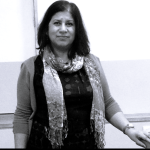AQA A-Level Biology: Aiming for A/A*
ABOUT THIS COURSE
This popular course has been refreshed for 2025 and will demonstrate how to guide your best students to achieve Grades A & A* in future AQA A-level Biology examinations. The course will explore the characteristics of A/A* students identified in research and why and how we must challenge our most able Biology students. Focused extensively on evidence-based teaching, learning and assessment practice as well as feedback from the most recent exams, you will leave with a vast range of resources and practical strategies that will enable you to meet the needs of your most able students and ultimately increase A & A* grade attainment. Finally, we will look beyond the course to focus on preparing these students to continue studying Biology at university.BENEFITS OF ATTENDING
- Increase awareness of what teacher should aim to achieve with the most able Biologists
- Gain the latest evidencebased practice that challenges A/A* students
- Develop greater understanding of what examiners are looking for in Grade A/A* responses
- Take away a range of innovative teaching ideas and electronic resources for your most able students
- Learn how to develop resilience so that talented Biology students achieve their A/A* potential
- Focused on identifying the demands of Grades A & A* and providing materials to help teachers prepare students effectively
- A detailed look at the different demands of questions
PROGRAMME
Challenging our Most Able Students
10.00am- Who are our most able students?
- Why do we have to challenge our most able students?
- How are A/A* Grades achieved?
Break
10.45amFocus on Assessment Demands for A/A* Students
11.00am- Examine the assessment demands of all components including the use of assessment objectives as a framework for assessment
- Consider the most effective models for delivery of the course to ensure effective assessment
- Feedback and grading analysis from the most recent exam
- What is required for A/A*?
- Analysis of mark schemes – which sections/questions differentiated candidates?
- Grades A & A*: what are the differences between these?
- Key attributes of Grade A/A* students in the classroom
- Avoiding potential hazards: what can cost a top student their A/A* grade?
The Key Challenges for A/A* students in the Papers
12.00pm- Developing a deep understanding of core Biology concepts
- Supporting students to write top band essays
- Developing a personalised approach to note taking to support recall
- Applying Biological concepts to consistently write top band evaluation
- Activating prior knowledge to improve retention of key topic areas
Lunch
1.00pmStretching and Challenging the Most Able Students
2.00pm- Moving on from GCSE approaches – encouraging students to become sensitive readers
- Using wider reading to prepare for exams
- What makes a strong A-Level response? How can we build up to this?
- Working up to full essay questions, and using them to stretch students
- Planning with and designing support for students aiming for top grades
- Extra-curricular ideas that help get A and A* grades
Break
3.00pmTactics for achieving the highest grades 3.10pm
- Develop an action plan for success for students aiming for top grades
- The shorter questions: what are the potential pitfalls?
- Focus on the extended questions and essays: what does a grade A/A* candidate need to do?
- Varying response practice to stretch the most able
- Revision ideas to help students produce high grade essays
Depart
3.4opm A-Level - Code: T0333
A-Level - Code: T0333
AQA A-Level Biology: Aiming for A/A*

COURSE LEADER
Dr Harjit K Singh is a highly experienced Biology teacher, with 30 years of A-Level classroom teaching, IB Biology for 8 years as well as BTEC Applied Science. She has worked with Biology Departments on interventions, focusing on Teaching and Learning. She has been an examiner for AQA and OCR A-Level Biology for over 20 years and as an IB examiner for over 15 years. She is involved with marking GCSE Biology mock papers for several different centres and was also a GCSE Psychology team leader for coursework.
She is a published author of the Key Skills and Knowledge Booster Biology and co-author of Key Skills and Knowledge Booster BTEC Science Applied and Vocational courses. She has been presenting Biology CPD courses for teachers both face to face and online for over 12 years. She has a wealth of experience in delivering student revision conferences and webinars and is actively involved with delivering In-School student A-Level Biology revision days. She has also been involved in presenting international IB student revision courses both national and internationally.
